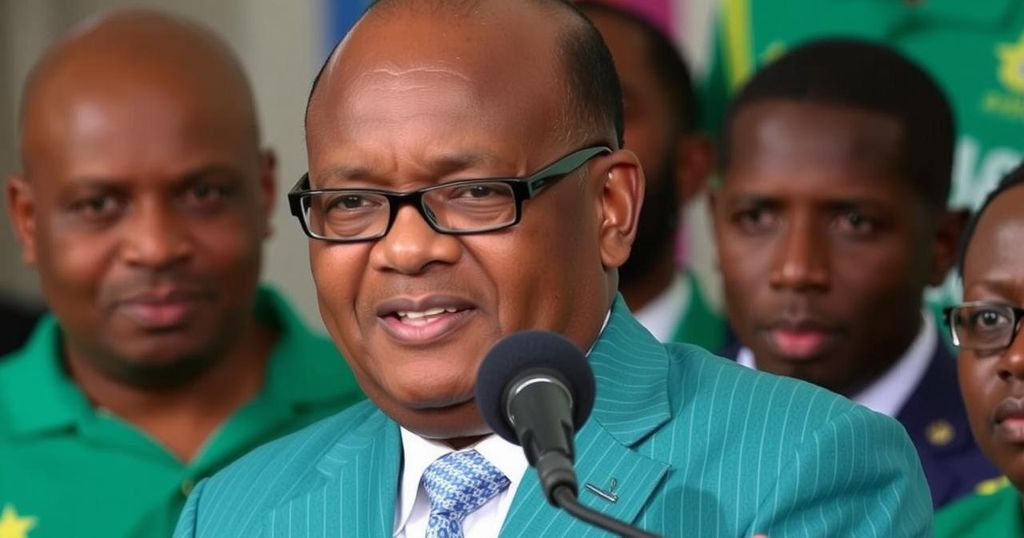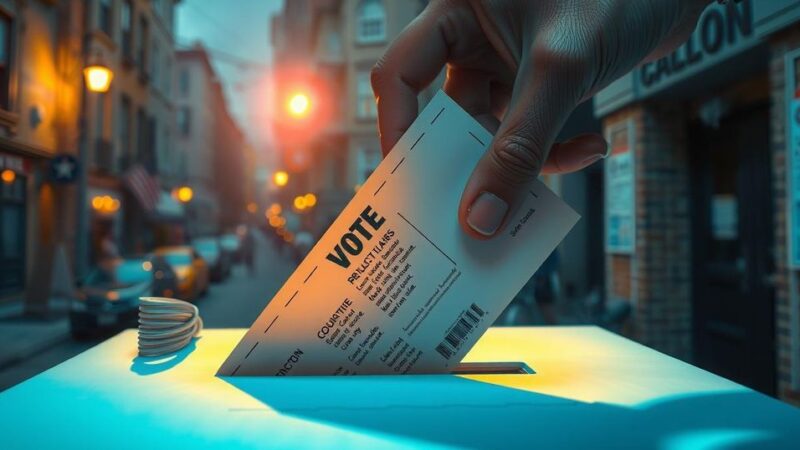Mozambique’s top court has affirmed the ruling Frelimo party’s election victory, leading to potential protests amid allegations of electoral fraud. Daniel Chapo garnered 65.2% of the votes, while opposition candidate Venâncio Mondlane received 24.2%. Protests have resulted in fatalities and significant social unrest, exacerbated by economic challenges and natural disasters. Mondlane has called for nonviolent protests and has challenged the electoral integrity.
Mozambique’s Constitutional Council has affirmed the ruling party, Frelimo, as victor of the October presidential elections, inciting potential further protests following two months of unrest fueled by allegations of electoral fraud. Daniel Chapo from Frelimo secured 65.2% of the vote, lower than the previously reported 70.7% by the election commission but sufficient to ensure his victory. His rival, Venâncio Mondlane, garnered 24.2%, incrementing from 20.3%, yet he has not secured the majority he claims to have possessed. The council’s report cited “discrepancies” in vote counting at the district level but failed to provide details, asserting that the Podemos party supporting Mondlane had submitted “inflated” electoral figures in their challenges.
Mozambique has witnessed extensive protest actions, with Human Rights Watch reporting a death toll exceeding 130 due to clashes with security personnel. While international observers have indicated signs of ballot corruption, they noted that Mondlane may not ultimately secure a credible electoral victory. Amid these tensions, Mozambique’s economy has been severely impacted. Cyclone Chido recently struck the nation, devastating over 110,000 homes and claiming approximately 120 lives.
In response to the legal ruling, Mondlane has called for his supporters to remain indoors until Friday, as part of ongoing protests dubbed “Turbo V8” while urging them to remain nonviolent. Notably, he stated, “If we get the electoral truth [from Ribeiro], we will have peace. If we get electoral lies, we will push the country over a precipice into chaos, into disorder.” Following the court ruling, reports indicated sporadic unrest, with footage showing the burning of tires in various locations under heavy state security presence. Chapo, due to officially assume office on January 15, expressed intention to initiate electoral reforms and asserted, “Dialogue is the only way to build social harmony.”
Analysts suggest that the current political landscape is unprecedented, with both the Frelimo party and the state demonstrating vulnerabilities. Alex Vines from Chatham House noted the emergence of a new political dynamic driven by Mondlane, recognized for mobilizing the frustrations of disenfranchised youth, representing a substantial shift from historical power dynamics.
The article discusses the aftermath of Mozambique’s recent presidential elections, where the ruling Frelimo party’s victory has been confirmed amid widespread allegations of electoral misconduct. Tension escalated following prolonged protests against the election results, hinting at a potential shift in the political landscape of Mozambique, marked by strong opposition and citizen discontent directed towards the ruling party’s established authority. This political turmoil accompanies broader socio-economic challenges, including disaster recovery efforts after a cyclone, amplifying the precarious situation in the country.
The confirmation of Frelimo’s election victory by Mozambique’s Constitutional Council highlights the deepening political unrest and potential for further protests in response to alleged electoral fraud. The rising prominence of Venâncio Mondlane reflects a burgeoning challenge to the status quo, fueled by a disillusioned youth population. As Mozambique grapples with internal strife and natural disasters, the calls for electoral reform and dialogue surface as critical strategies to navigate the complex socio-political terrain ahead.
Original Source: www.theguardian.com






